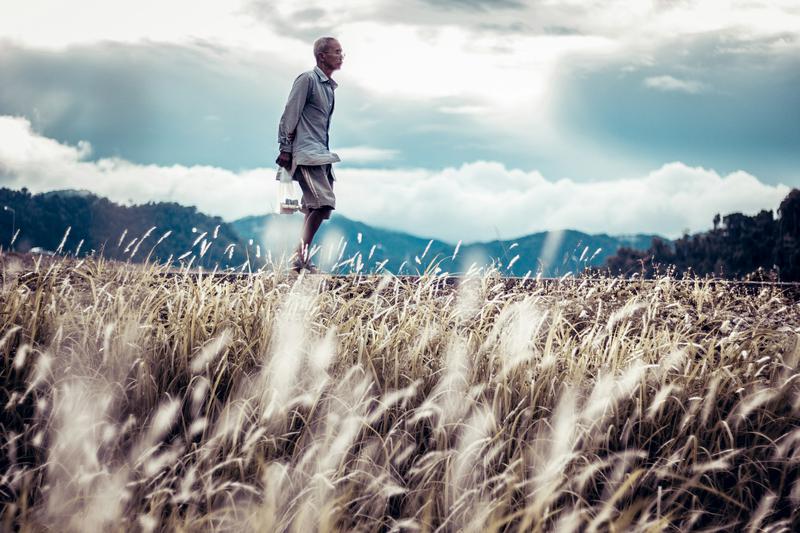Thoughts and Suggestions from an Aging Psychologist.
Focus: Traversing the Territory of Old Age
My students often ask, “When does old age actually begin?” How old are you when you’re considered to be old? And “who or what gets to define old age?”
Unfortunately, the truth doesn’t provide a totally satisfying response. Old age is actually mostly individually defined, informed by culture, cohort, historical moment, geography, and the imprints of families and community connections. Old age is also often heralded in with the occurrence of a specific event such as retirement or widowhood.

For example, in my grandmother’s generation, women were defined as old when their spouse died, regardless of their own age. As a widow, they were expected to alter their wardrobes to match the new role; they wore dark colored clothes and serviceable shoes rather than fashionable ones. Different systems also define old age differently. For example, the prison system defines inmates who are over the age of 50 as old. Most of the gerontology-related literature identifies age 60 or 65 as the threshold to old age. In recent years, the continuum of old age has been segmented into the “young old”(65-74), “old” (74-84), and “old-old” (85+). And currently, “super agers” (those over the age of 80 who have maintained the cognitive abilities of much younger persons) are garnering considerable attention.
DrR’s Truisms of Aging: Becoming an Older Person
Increased Interiority
“Older adults often find comfort in quiet reflections and sharing their life philosophy with younger people.”
When we become older, we tend to become more introspective, philosophical, and self-focused. This helps in reinforcing our sense of self-continuity, even as we feel different, appear different, and are adjudicated by others as being different. Increased interiority is also supported by universal tendencies toward nostalgia, life review, and reminiscence.
Slowing and Reduced Energy
“As we age, both our physical and mental processes slow down, making speed increasingly inconsistent with our modern pace of life.”
We become slower in almost every way, both internally and externally. Our digestion system slows down, our movements become less quick, and our cognitive abilities, like learning new material and recalling known information, become slower. A correlate of this slowing is perceived as reduced energy, which becomes an increasingly valuable commodity with advancing age.
Memory Changes
When we become older, our memory changes. Information is more difficult to get into our working memory, requiring more effort and repetition. However, crystallized memory is remarkably retained throughout sentient life, and we have a sturdy and sustained capacity for generalization.
Mind and Body Connection
“Our emotions, moods, and physical sensations become more intertwined as we age.”
Our mind and body become increasingly connected. Emotions and moods can dramatically affect physical sensations and vice versa. Familiar body aches and pains are affected by our mood, and when stress is down and mood is up, our regular aches and pains are often less bothersome.

Diversity
Another truism is that older persons are more diverse among ourselves in older age than at any other age. It is far more useful, and respectful, to consider the trajectory of “becoming,” along with incorporating an appreciation of the truisms as normal and expectable experiences.
ACTIVITY: Grandmother’s Ironing Basket
In my December 2023 post, Grandmother’s Ironing Basket, I resolved to address four terms that induce feelings of guilt, urgency, powerlessness, and stress. These terms are:
- Should
- Ought
- Must
- Have To
These terms collectively form a list that serves as a mighty fist that we use to cognitively beat ourselves up.
Tackling “Should”
Should is a simple verb that connotes obligation. It often incorporates a tone of morality or criticism. When it comes from someone other than ourself, it often implies a needed correction. It can be critical, implying insufficiency or inefficiency.
The Actual Activity
Become conscious of when you say to yourself anything that includes the “should demand.” Notice how often you use it in your thinking, then deliberately reframe and rephrase the self-message.
Reframe example: “This freezer needs attention because it is impossible to see anything in the back!”
Rephrase example: “OK. How long would it take me to take care of this? I’ve done it before and I know it takes about half an hour. It’s a fairly mindless task, so I can do it with the radio on and catch up with the news. I can fit it in today after school.”
“Reframing and rephrasing can significantly alter our perception of tasks and reduce the stress associated with them.”
Let me know if this helps.
Next post, we’ll take on OUGHT.

Photo by frame harirak on Unsplash